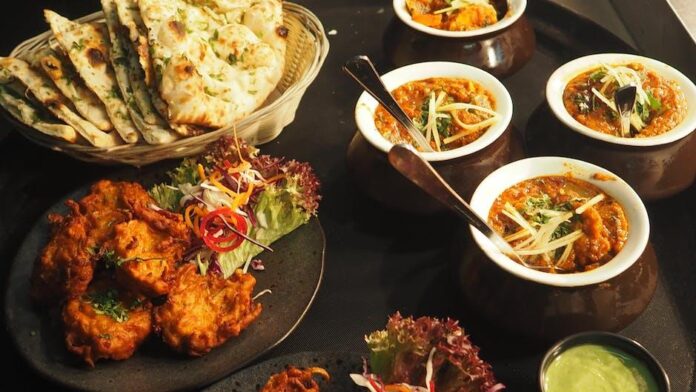
Diabetes is a condition that affects millions of people worldwide. Type 2 diabetes is a chronic disease that affects the way your body processes glucose (sugar), leading to high blood sugar levels. If you have been diagnosed with Type 2 diabetes, it is crucial to pay close attention to your diet to help manage your condition and prevent future complications. Certain foods can cause spikes in blood sugar levels and should be avoided by individuals with Type 2 diabetes. In this article, we will discuss the top foods to avoid if you have Type 2 diabetes.
1. Sugary Beverages
Sugary beverages are one of the worst culprits for individuals with Type 2 diabetes. These drinks are loaded with added sugars and can cause a quick spike in blood sugar levels. Regular consumption of sugary beverages can also lead to weight gain, which is a risk factor for diabetes complications. It is best to avoid soda, fruit juice, sweet tea, and energy drinks if you have Type 2 diabetes.
2. White Bread and Pasta
White bread and pasta are made from refined grains that have been stripped of their fiber and nutrients. These foods can cause a rapid increase in blood sugar levels, making them unsuitable for individuals with Type 2 diabetes. Instead, opt for whole-grain bread and pasta, which contain more fiber and are digested more slowly, causing a gradual rise in blood sugar levels.
3. Sweets and Desserts
Desserts and sweets are typically high in sugar and should be avoided by individuals with Type 2 diabetes. Cakes, cookies, ice cream, and candy can lead to spikes in blood sugar levels and should be consumed in moderation or avoided altogether. If you have a sweet tooth, try opting for healthier alternatives like fresh fruit or dark chocolate with a high cocoa content.
4. Fried Foods
Fried foods are high in unhealthy fats and can contribute to weight gain and insulin resistance, both of which are risk factors for Type 2 diabetes. Foods like French fries, fried chicken, and onion rings should be limited or avoided if you have diabetes. Instead, choose healthier cooking methods like baking, grilling, or steaming.
5. Processed Meats
Processed meats like bacon, sausage, and deli meats are high in saturated fats, sodium, and nitrates, all of which can increase the risk of heart disease and worsen diabetes symptoms. These meats are also often high in preservatives and additives that can be harmful to your health. Opt for lean cuts of unprocessed meats like chicken, turkey, or fish instead.
6. High-Sugar Breakfast Cereals
Many breakfast cereals are high in sugar and can cause a spike in blood sugar levels. It is essential to check the nutrition label and choose cereals that are low in sugar and high in fiber. Look for whole-grain options with at least 3 grams of fiber per serving to help control blood sugar levels and keep you feeling full.
7. Sweetened Yogurts
Many flavored yogurts are loaded with added sugars that can cause blood sugar levels to rise quickly. It is important to choose plain, unsweetened yogurt and add your fruit or a small amount of honey if you want to sweeten it. Greek yogurt is a good option as it is higher in protein and lower in sugar than regular yogurt.
8. Alcohol
Alcohol can interfere with blood sugar levels and may cause fluctuations in glucose levels. It is crucial to consume alcohol in moderation if you have Type 2 diabetes and always pair it with food to help prevent spikes in blood sugar levels. Opt for low-sugar options like dry wines or spirits mixed with sugar-free mixers.
9. Fruit Juice
While fruit juice may seem like a healthy choice, it is often high in sugar and can cause blood sugar levels to spike rapidly. Whole fruits are a better option as they contain fiber, which helps slow the absorption of sugar into the bloodstream. If you do choose to drink fruit juice, make sure it is 100% juice and consume it in small amounts.
10. High-Sodium Foods
Foods that are high in sodium can lead to high blood pressure, which is a risk factor for diabetes complications. It is essential to limit your intake of processed foods like canned soups, frozen meals, and fast food, as these are often high in sodium. Instead, opt for fresh, whole foods and use herbs and spices to add flavor without the need for added salt.
In conclusion, managing Type 2 diabetes requires a balanced diet that focuses on whole, unprocessed foods and avoids those that can cause spikes in blood sugar levels. By avoiding sugary beverages, white bread, sweets, fried foods, processed meats, high-sugar breakfast cereals, sweetened yogurts, alcohol, fruit juice, and high-sodium foods, you can help control your blood sugar levels and reduce the risk of diabetes complications. It is essential to work with a healthcare provider or a dietitian to create a personalized meal plan that meets your individual needs and helps you manage your diabetes effectively. Remember, small changes in your diet can make a significant difference in your overall health and well-being.

















